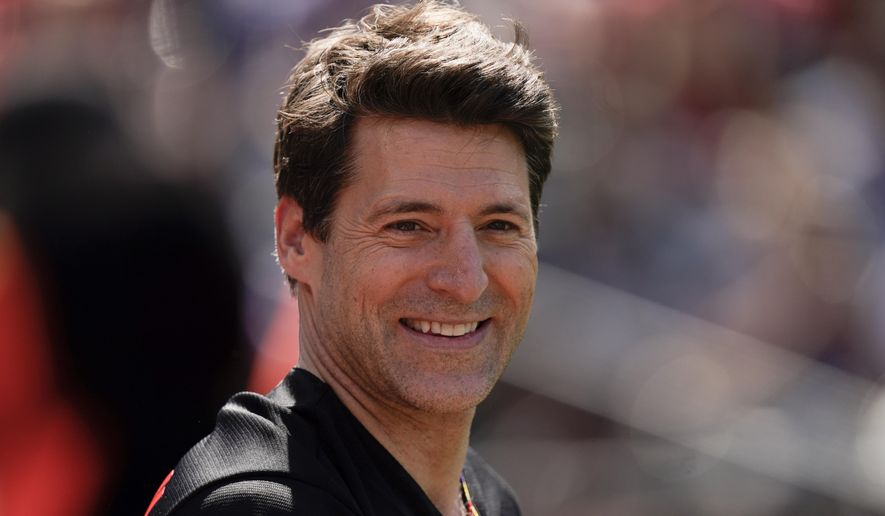CBS Conceals Truth in Kamala Harris’ ’60 Minutes’ Interview
In the midst of a $10 billion legal dispute initiated by former President Donald Trump, CBS News has communicated its intention to provide Federal Communications Commission with an unaltered transcript of Kamala Harris’ ’60 Minutes’ interview from October. FCC Chairman Brendan Carr prompted this decision by asking CBS News for a thoroughly unedited transcript and visual recordings of the interview held with Harris. CBS News has indicated that it is responding to the request not out of volition but due to legal obligations.
Trump asserts that the editorial team at ’60 Minutes’ portrayed Harris in more favorable conditions to the voting community during her October interview. To put it bluntly, he alleges the responses given by Harris were edited in a way that made her seem more likable to the voters.
Further controversy ensued when The Center for American Rights (CAR) lodged an official complaint against CBS with the FCC last October. The accusations lodged by CAR’s officials alleged that CBS was ‘intentionally distorting the news’ when broadcasting the same interview with Harris on two platforms – ‘Face the Nation’ on October 5, and ’60 Minutes’ on October 6.
CAR President Daniel Suhr spoke sternly of this matter, emphasizing that this isn’t solely about one interview or one network. It extends to public faith in media relating to pivotal national security issues and international relations during a high-stakes electoral period. Such manipulative editing of interviews and obfuscation of reality can endanger the very foundations of democracy itself, Suhr added.
Highlighting urgency, Suhr stressed ‘The FCC must work rapidly to regain public faith in our news media’. The CAR complaint was initially dismissed by FCC officials on January 16, but was subsequently resumed after Trump assumed office.
CBS News officials dismissed the allegations, maintaining that they broadcasted two portions of the same interview and Harris’ response to a question related to the conflict situation in Gaza, with no foul play involved. They defended their position by emphasizing the consistency of questions and answers, albeit with different excerpts of the response broadcasted.
CBS News insisted they remained ‘clear, accurate, and on point’ irrespective of the interviewed person’s background or prestige. However, their stance appears to lack validity, given the serious charges they face, which question their impartiality.
In the meanwhile, Trump set forth his lawsuit on October 31 in the U.S. District Court for Northern Texas, located in Amarillo. He named both CBS Broadcasting Inc. and CBS Interactive Inc. as defendants. He is seeking $10 billion as a compensational amount, pointing to CBS’s biased attempt to ‘sway the balance towards the Democratic Party’, as he believes.
CBS’s parent company, Paramount Global, might be considering settling the lawsuit, perhaps indicative of some internal corroboration to these claims. This news certainly came as an unsettling surprise for the workforce at CBS News, further adding to their woes.
Trump’s accounts were menacingly silent through this kerfuffle, only to be brought back into operation in 2023. There’s no denying that allegations of this magnitude can significantly impact public perception. The question remains if viewers will critically assess the information presented to them, especially when the chap who’s disseminating it has a demonstrated flair for ‘alternative facts’.
The heart of the lawsuit seems to lie in the claimed distortion of news surrounding Kamala Harris’ interview. The presentation of politicians in public media plays a significant role in shaping public opinions and democratic choices. Authorities must ensure that the media remains unbiased and truthful.
While CBS has challenged Trump’s accusations as meritless, their edits of interviews, whether of politicians, athletes, or movie stars, are now subject to scrutiny. The network’s claim of aiming for ‘clarity, accuracy and point’ falls under a cloud of doubt as the lawsuit progresses.
If successful, Trump’s legal action could potentially set a precedent, challenging the unchecked power of mainstream media corporations, forcing them to rethink their editorial line. That being said, it is a real challenge to decouple Trump’s personal motivation in pursuing this particular course of action.
The scenario reflects a battle between media giants and political magnates. It remains to be seen where the balance will tilt. Will CBS News succumb to the legal pressure or will they persist in defending their editorial choices?
While transparency and neutrality in news reporting are paramount, they seem to be perpetually at odds in this complex dynamic. The narrative spinning around high-profile figures such as Kamala Harris brings profound implications for the mediation of politics and public understanding.
As the public awaits the FCC’s next steps, trust in media hangs precariously in the balance. It’s a reminder that public media entities carry a hefty responsibility, one that goes beyond serving politicians’ interests or their own. At the end of the day, they owe truth and honesty to their audiences.

